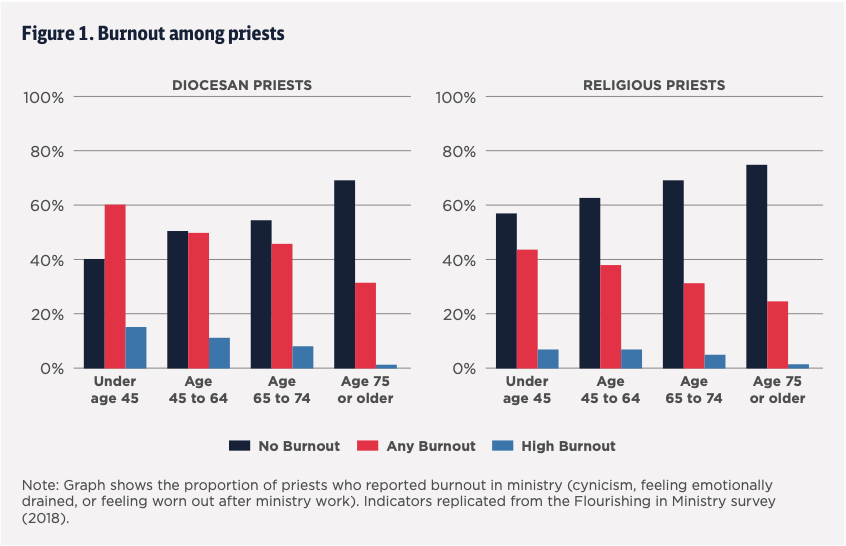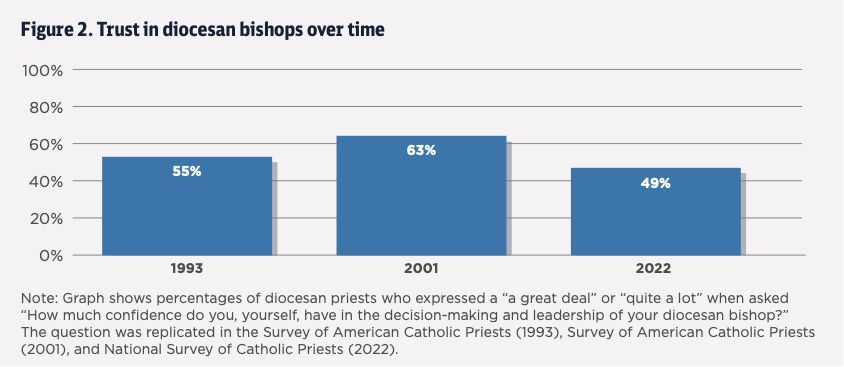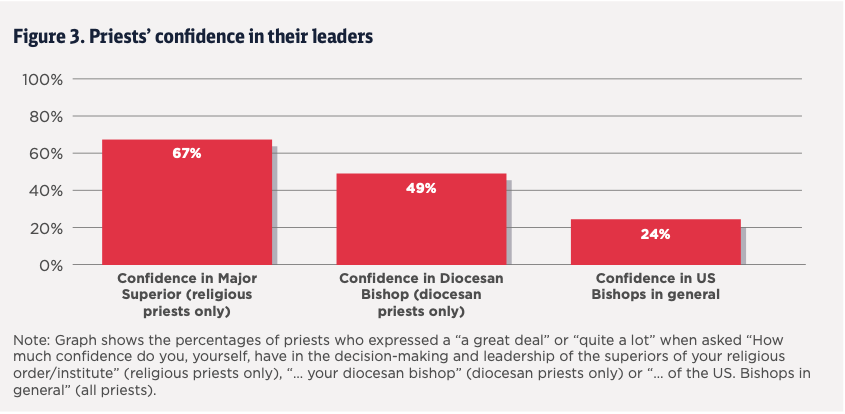(ZENIT News / Washington, D.C., 21.11.2023).- A recent study carried out by “The Catholic Project,” a research group of the University of America in Washington, D.C., has revealed a drastic change in the theological tendencies among the Catholic clergy in the United States. This study, considered the most extensive survey done among Catholic priests over the last 50 years, highlights a marked generational difference in the connection of priests with tradition and orthodoxy.

The research points out that young priests in the USA are significantly more connected with the tradition than their older colleagues of the conciliar generation. Over 80% of priests ordained after 2020 identify themselves as conservatives or orthodox, aligned with the Magisterium of the Church. This change marks an evident contrast with the self-image of older priests, the majority of whom identify themselves politically as liberals and theologically as progressives.
The clear decision of younger priests to embrace a faith that prioritizes understanding and abstains consciously from questioning the teaching of the Church has been constant in recent years. Analyzing the figures from 2010 to 20223, one observes that more than 50% of recently ordained priests describe themselves as conservatives, marking an ascendent tendency in this theological orientation.

In the study’s words, “the number of recently ordained persons that consider themselves politically liberals and theologically progressives has decreased constantly since Vatican Council II and has now almost disappeared.” No priest surveyed in this period classified himself as progressive on the theological spectrum .
This generational change poses questions on the future of the Catholic Church in the United States, and how these theological differences could influence her direction. Will this conservative tendency be translated in a rethinking of the Church’s internal policies? How will the faithful respond to this generational change in the clergy’s theological orientation?

As the Church navigates through these changes, it’s clear that the next generation of priests is marking a different pattern in its relationship with tradition and orthodoxy, challenging the theological tendencies that predominated for decades.



